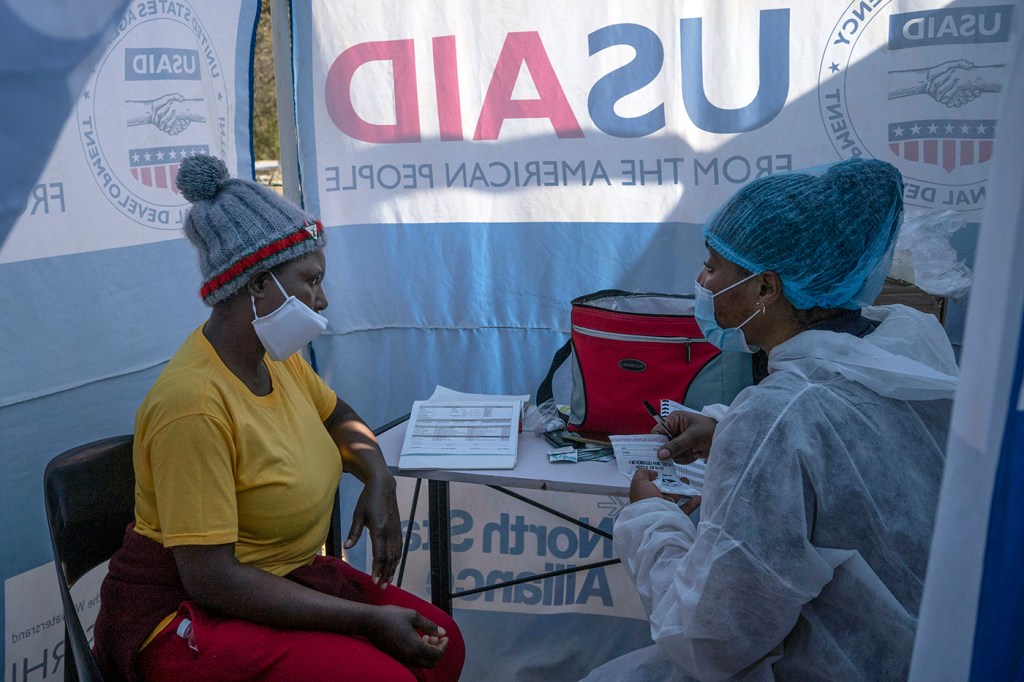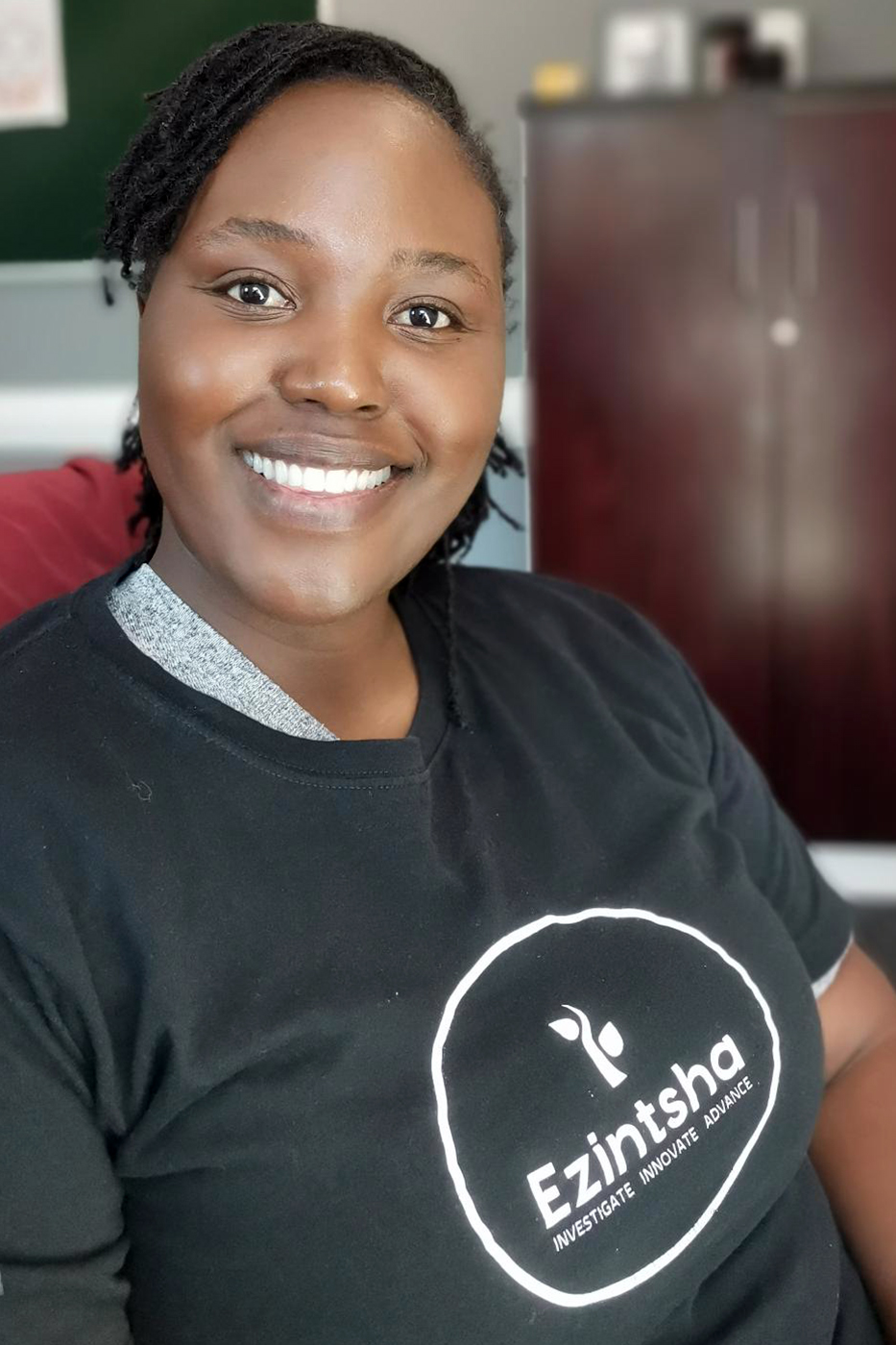Her HIV research shed new light on treating African women with AIDS. Now her focus is COVID-19.

Nomathemba Chandiwana is a 2004 Northeastern graduate whose HIV research was published in the internationally renowned New England Journal of Medicine. Now she has her sights set on the COVID-19 virus.
South Africa has been greatly affected by the “colliding epidemics” of COVID-19 and HIV, says Chandiwana, who moved to the country in 2005 from Boston to continue her medical education.
“Being an HIV physician and seeing COVID-19, I see that there are some similarities, but what has not been similar is the response,” she says from Johannesburg, where she works as a senior research clinician at Ezintsha, a research institute whose name means “innovation” or “new things.”

The quick discovery of COVID-19 vaccines “has shown us that the world can come together for something and we can make a difference,” says Chandiwana. Photo courtesy of Nomathemba Chandiwana
Ezintsha is part of South Africa’s Wits University, a public research institution whose graduates include the current dean of Northeastern’s College of Science, Hazel Sive.
HIV “disproportionately affected women, minority, and transgender populations, and the response was not as as large as we saw [with COVID-19],” Chandiwana says. In comparison, the medical community and government officials threw everything they had into battling SARS-CoV-2, the coronavirus that causes COVID-19. “It was overwhelming. It was quick,” she says. “But in the HIV world things took a long time.”
Nearly 29 percent of the world population has received at least one dose of a COVID-19 vaccine, and 15 percent are fully vaccinated, according to Oxford University’s Our World in Data. In South Africa, only 5 percent are fully vaccinated compared to the world leader, Canada, at 59 percent.
The United States said on July 28 it will send nearly 10 million doses to South Africa and Nigeria, two of the most populous countries in Africa, Reuters reported. The nearly six million doses of the Pfizer vaccine is the single largest sent by the United States to South Africa since it began sending inoculations overseas.
The COVID-19 pandemic “has shown us that the world can come together for something and we can make a difference,” says Chandiwana.
She would know. Her organization, Ezintsha, which conducts clinical trials, advocacy, and medical diagnostics, received a nearly $4 million grant from the U.S. government for the clinic’s biggest research trial to date―comparing three different types of antiretroviral drugs for HIV in people who are starting treatment for the first time.
Antiretroviral drugs are used to treat retrovirus infections, primarily HIV.
The study, led by Chandiwana, involved more than 1,000 patients, mostly Black women in their 20s and 30s. The researchers noticed right away that the antiretroviral drugs caused about 30 percent of the women in the study to gain enough weight to be considered clinically obese. The reasons are not yet known and there are currently no treatments.
The news is significant for understanding obesity and its impact on young adults who may have to be on HIV treatment for decades. “What does that mean in a country like South Africa where we have nearly 5 million people who are on antiretroviral treatment?” Chandiwana wonders.
Excessive weight can lead to other health issues, including high blood pressure, heart disease, and diabetes―the biggest killer in South Africa.
Chandiwana and her colleagues presented their findings at an AIDS conference in Amsterdam in 2018, where “people said we were the first study to share these findings,” says Chandiwana, adding that other HIV studies hadn’t tracked the correlation between antiretroviral drugs and weight gain. “What was initially supposed to be a standard type of study has been one of the most defining studies in the HIV world.”
With an extensive background dealing with infectious diseases, Chandiwana and her team are turning their attention to COVID-19 with an early treatment trial that explores the use of antiviral and antimalarial drugs to treat respiratory infections.
“I’m an HIV physician, but based on the experience that we have in HIV and infectious diseases, we have been doing a lot of Covid work,” she says.
The trial involves 250 people aged 18-65 who are experiencing mild symptoms from the disease. The study, expected to wrap up later this year, has been hard. “Conducting research in a pandemic has been extremely difficult,” Chandiwana says, but it has had its share of promising moments.
While civil unrest was unfolding in Johannesburg earlier in July, Chandiwana had to navigate street protests to deliver oxygen to a patient. “Her getting better, and knowing that we helped save a life, was one of the proudest moments of the trial,” the researcher says.
Chandiwana was born in Zimbabwe but moved around because of her mother’s job as a diplomat. Both parents are U.S.-educated and wanted the same for their three children, which is how Chandiwana came to Northeastern. The U.S. system “teaches you to think in a different way” compared to the more rigid English system she was used to. “Being an outlier was not a good thing,” she says.
Though two decades have passed since Chandiwana graduated from Northeastern with a degree in behavioral neuroscience, Chandiwana still feels a connection to the university. She is a member of the Africa Global Initiative, which seeks to strengthen Northeastern’s presence in Africa, and increase African student enrollment and exchanges.
“I’m now in a position to be able to foster relationships,” she says.
Already Chandiwana convinced a cousin, Mbongeni Mahluza, to come to Northeastern, where he is now pursuing a master’s degree in the Khoury College of Computer Sciences. And she expects to continue to be part of the university’s fabric for a long time.
“You don’t dip in and out,” she says. “Two decades later and I’m still a part of Northeastern.”
For media inquiries, please contact media@northeastern.edu.





